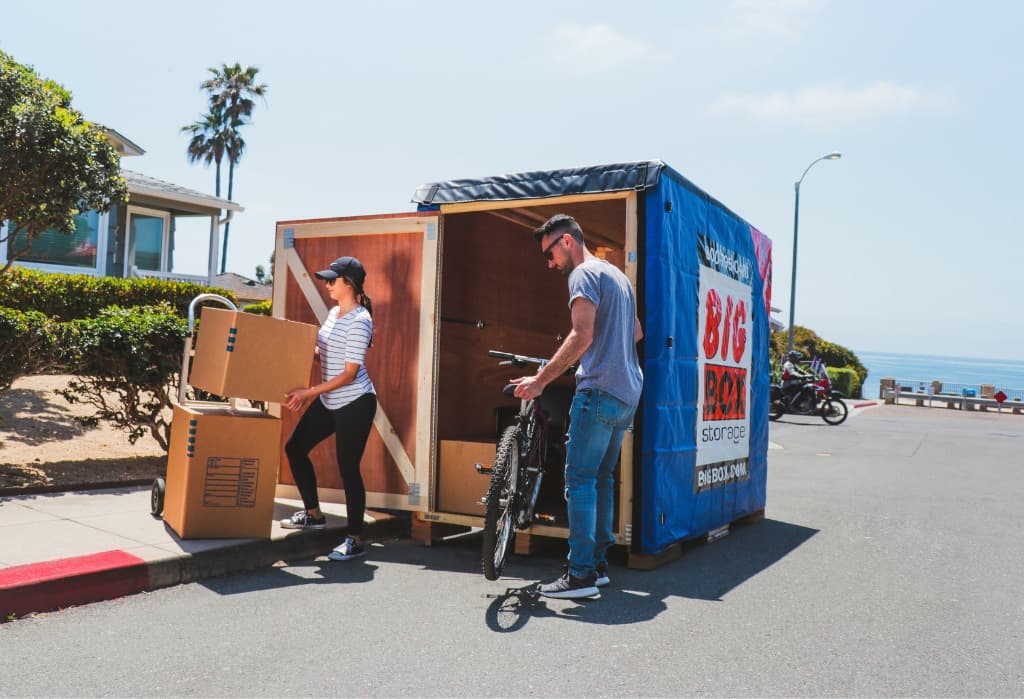While Big Box Storage doesn’t offer car or vehicle storage, we know a thing or two about storage! If you’re planning to store a car, here are some helpful tips to ensure your vehicle stays safe and in great condition while it’s not in use.
Why You Might Need Vehicle Storage
There are many reasons to store a car. Maybe you’re heading out on a long trip and don’t want to leave your car unattended in the driveway. Perhaps you have a classic car you’ve lovingly restored and want to keep it safe from theft or damage. Or maybe, like Jay Leno, you simply have more cars than space.
No matter the reason, proper storage is essential. It protects the exterior and mechanical components of your car, preserving its value and longevity.
Choosing a Vehicle Storage Facility
Here are some key factors to consider when selecting a storage facility:
- Location: Choose a facility close to home for easy access. Knowing your car is nearby can provide peace of mind.
- Security: Look for facilities with 24-hour monitoring and video surveillance to protect against theft and damage.
- Rodent Control: Select a facility that takes measures to deter rodents, as they can wreak havoc on stored vehicles.
- Amenities: Check for extras like good lighting, heating, cleanup areas, and trash disposal. If you plan to work on your car while it’s in storage, these amenities will make a big difference.
Prepping Your Vehicle for Storage
Once you’ve chosen the facility, proper preparation is key to keeping your car in excellent condition. Here’s how to get started:
- Oil Change: Replace old oil with premium, additive-free oil to prevent erosion while the car sits idle.
- Full Tank of Gas: Fill up with high-quality gas, ideally without ethanol, to prevent condensation in the tank. Add a gas stabilizer for added protection.
- Fresh Anti-Freeze: Ensure the car has clean anti-freeze to protect against temperature fluctuations.
- Thorough Cleaning: Clean the interior and exterior of your car to remove food scraps and spills that could attract pests.
Tire Care
- Short-Term Storage: Inflate tires to the proper pressure to ensure even support.
- Long-Term Storage: Place the car on jack stands to prevent tire flat spots and reduce strain on the suspension.
Extra Tips for Long-Term Storage
- Polyurethane Sheet: Park the car on a sheet to detect fluid leaks easily.
- Block Rodent Access: Plug the air intake and exhaust pipe with rags to deter nesting.
- Battery Maintainer: Use a trickle charger to keep the battery charged.
- Wiper Protection: Wrap wiper blades in plastic or remove them to prevent sticking or damage.
- Avoid Emergency Brake: Use wheel chocks instead to prevent stress on the brake system.
- Car Cover: Use a ventilated car cover to protect against dust while allowing moisture to escape.
- Windows Slightly Open: Leave windows open a crack to promote airflow and prevent condensation.
- Hydraulics Maintenance: Work the clutch and brakes every month to keep them functional.
Key Precautions
- Rodent Control: Place repellents or bait around the vehicle and check periodically for signs of damage.
- Gas Stabilizer: Always use a stabilizer when storing a car with a full tank of gas.
- Wiper Position: Never leave wiper arms extended, as they can snap back and damage the windshield.
- Insurance Coverage: Ensure your car is insured during storage for protection against unforeseen issues.
By following these tips, you’ll keep your vehicle in top shape while it’s in storage. Proper preparation and a good storage facility can make all the difference. Even though Big Box Storage doesn’t offer vehicle storage, we’re happy to help with advice to make your storage experience seamless!




